|
Dear Colleagues,
I am pleased to include another issue of RFS Briefings with some timely and encouraging updates on women in science.
Please continue to share important news and opportunities with us so that we may share it with you, and others who are committed to supporting the careers of exceptional women in science.
Stay safe and sound,

Karla Shepard Rubinger
Executive Director
Rosalind Franklin Society
www.rosalindfranklinsociety.org
FDA adds some fresh senior leadership with new chief scientist, chief medical officer.
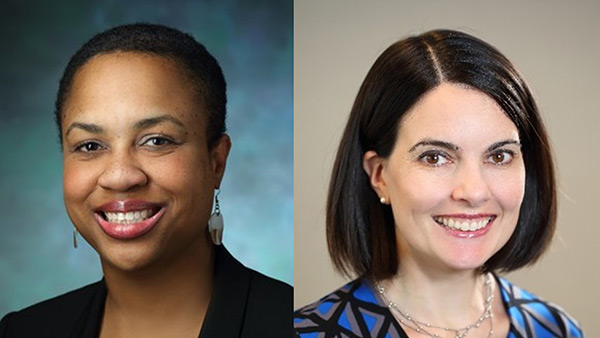
Johns Hopkins’ Namandjé Bumpus will be the FDA’s new chief scientist, replacing Denise Hinton, who moved on in October 2021 to advise and support the US Surgeon General, and Hilary Marston, a White House senior policy advisor on Covid-19, will take over as chief medical officer, which was a role previously held by Janet Woodcock. Image: Namandjé Bumpus (L) and Hilary Marston. Read more.
The Human Right to Our Bodies.
Roe v. Wade is overturned. “Now is the time to mobilize and defend, through science and innovation, the fundamental and unalienable human right of reproductive health.” Read Dr. Hana El-Samad's powerful editorial in GEN Biotechnology. Read more.
CRISPR debuted 10 years ago, in a paper hardly anyone noticed. Jennifer Doudna reflects on the DNA scissors’ first decade.
Recently, Jennifer Doudna had the opportunity to speak over Zoom with Victoria Gray — the first sickle cell patient in the U.S. to be treated with CRISPR — and to hear about her life before and after the therapy. “I’ll just never forget that moment. For a scientist to see the real-world impact of work they were involved in, there’s just nothing like it. To see that real-world impact within 10 years of that original publication? That’s just mind-blowing to me,” says Doudna. Read more.
Prisca Liberali awarded EMBO Gold Medal 2022.
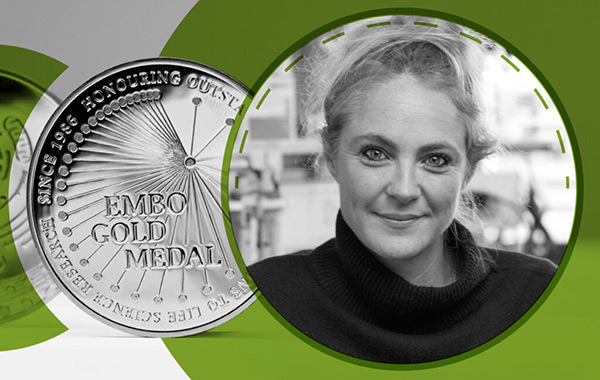
Molecular cell biologist Prisca Liberali, senior group leader at the Friedrich Miescher Institute for Biomedical Research in Basel (FMI), Switzerland, is recognized for her exceptional contributions to understanding the formation of intestinal organoids from stem cells and for developing new analytical tools. Read more.
Interview with Vaccinologist Sarah Gilbert: ‘We need to be better prepared for a new pandemic’
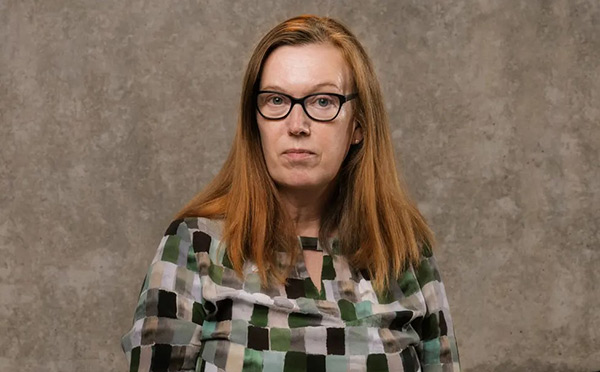
Dame Sarah Gilbert is a professor of vaccinology at Oxford’s Jenner Institute. “It’s difficult to take any time away from the job I do. I find it really hard to switch off. I need to get better at that. It was difficult for all of us – they did whatever they could to support me,” says Gilbert. Photograph: Manuel Vázquez/The Guardian. Read more.
UMass Amherst chemical engineer receives $1.4M NSF grant to create programmable living devices for drinking water contaminant removal.
Lauren Andrews, University of Massachusetts Amherst assistant professor and the Marvin and Eva Schlanger Faculty Fellow in the department of chemical engineering, has received a three-year, $1.4 million grant from the National Science Foundation for a collaborative project to engineer synthetic bacteria to neutralize toxic contaminants found in drinking water. Read more.
New portrait of five trailblazing women scientists from Rockefeller’s past is unveiled.
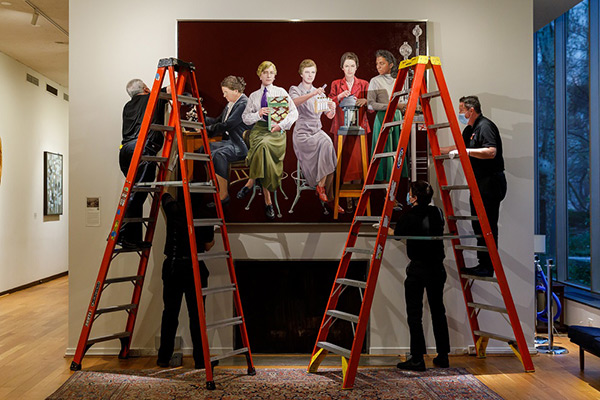
Until this spring, The Rockefeller University art collection contained 35 portraits—all depicting historical male scientists and benefactors. But on April 14, when a new portrait by artist Brenda Zlamany was unveiled over the fireplace in the Abby Aldrich Rockefeller Reception Hall, five preeminent women scientists joined the university’s portraiture collection. Read more.
National Academy of Medicine names 11 Scholars in Diagnostic Excellence for 2022.
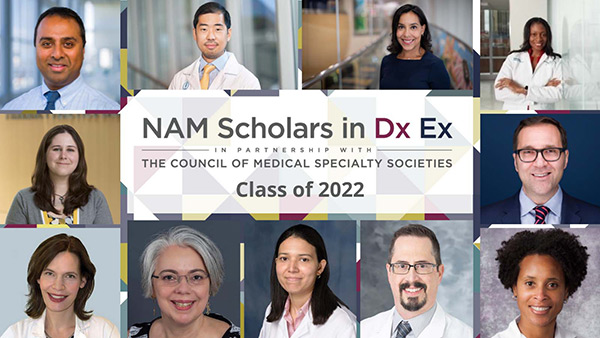
Funded by the Gordon and Betty Moore Foundation, this collaborative program in partnership with the Council of Medical Specialty Societies (CMSS) offers a one-year, part-time experience for exceptional individuals to advance their diagnostic skills, make significant contributions to improve clinical diagnosis at the national level, and accelerate their career development as national leaders in the field. Read more.
Carnegie Corporation of New York honors 34 distinguished immigrants whose contributions to our democracy inspire us all.
Congratulations to the four women scientists! This year, Carnegie Corporation of New York is highlighting the work of immigrants including two Nobel Prize laureates, a COVID-19 vaccine developer, a university president, an expert on nuclear threat reduction, and more. Read more.
Ukrainian mathematician becomes second woman to win prestigious fields medal.
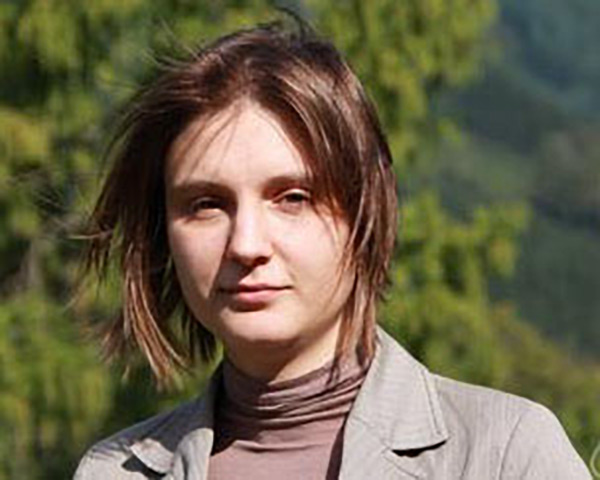
Ukrainian number theorist Maryna Viazovska is among the four winners of the 2022 Fields Medals, one of the highest honors in mathematics that is conventionally awarded to people aged under 40. She is best known for her solution of the sphere packing problem — finding the arrangement of spheres that can take up the largest portion of a volume — in eight dimensions. Read more. (Image by Wikipedia)
Imperial researcher honored at Asian Women of Achievement Awards.
Dr Pavani Cherukupally, from Imperial’s Department of Chemical Engineering, received an Asian Women of Achievement award in the science category earlier this month for her work in surface science. Her recent research has included developing a scalable and low-cost material that can remove pathogenic bacteria from wastewater, presenting opportunities to make water safe and prevent the spread of water-borne infectious diseases. Read more.
Stoddard named Schmidt Science Polymath.
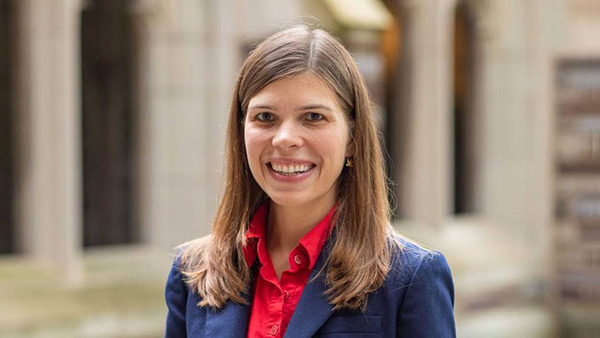
Schmidt Futures announced that Mary Caswell “Cassie” Stoddard is one of 10 Schmidt Science Polymaths for 2022. Stoddard, an associate professor of ecology and evolutionary biology, studies the extraordinary diversity of signals and traits in nature. Her lab investigates the evolution of animal coloration and morphology, with a focus on birds. Photo by Nick Donnoli, Office of Communications, Princeton University. Read more.
Marianna Limas, Social Media Manager
Nilda Rivera, Partnership and Events Manager
|
|
|
Dear Colleagues,
I am pleased to include another issue of RFS Briefings with some timely and encouraging updates on women in science.
Please continue to share important news and opportunities with us so that we may share it with you, and others who are committed to supporting the careers of exceptional women in science.
Stay safe and sound,

Karla Shepard Rubinger
Executive Director
Rosalind Franklin Society
www.rosalindfranklinsociety.org

After Roe v. Wade: US researchers warn of what’s to come.
The constitutional right to an abortion has been struck down in the United States. The US Supreme Court announced on 24 June that it would overturn the 1973 landmark decision Roe v. Wade, which had protected abortion access up until the point that a fetus could live outside the womb. Public-health researchers have renewed their warnings of the harms that this decision will bring to the country. Read more.
At the forefront of building with biology.
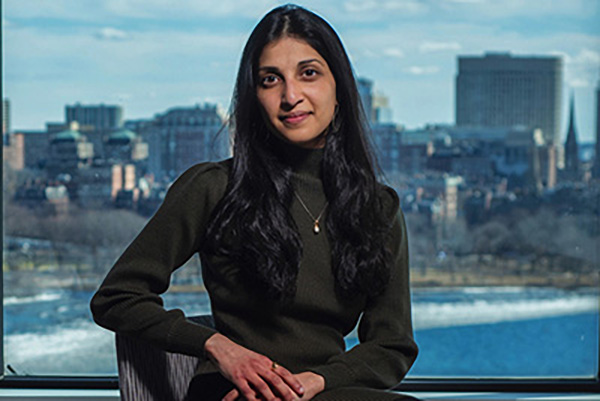 Caption: Ritu Raman. Photo: David Sella Caption: Ritu Raman. Photo: David Sella
Ritu Raman leads the Raman Lab, where she creates adaptive biological materials for applications in medicine and machines. “As a mechanical engineer, I’ve pushed back against the idea that people in my field only build cars and rockets from metals, polymers, and ceramics. I’m interested in building with biology, with living cells,” she says. Read more. Check out her presentation at the Rosalind Franklin Society 2019 year end meeting.
Women less likely than men to get authorship on scientific publications, analysis finds.
Women are 13% less likely to be credited with authorship than men on a paper and 58% less likely to receive credit on a patent. The discrepancy exists despite survey results showing women self-report contributing to a broader swath of types of scientific work that would merit authorship than men. Read more.
Biden names former DARPA leader Arati Prabhakar as science adviser.

US President Joe Biden has nominated Arati Prabhakar, an applied physicist with extensive experience in both government and the private sector, to be head of the White House Office of Science and Technology Policy (OSTP), and named her as his next science adviser. Read more. Image: Defense.gov
Applications are open for the Michelson Philanthropies and Science Prize for Immunology.
The Michelson Philanthropies & Science Prize for Immunology focuses on transformative research in human immunology, with trans-disease applications to accelerate vaccine and immunotherapeutic discovery. This international prize supports investigators 35 and younger, who apply their expertise to research that has a lasting impact on vaccine development and immunotherapy. It is open to researchers from a wide range of disciplines including computer science, artificial intelligence/machine learning, protein engineering, nanotechnology, genomics, parasitology and tropical medicine, neurodegenerative diseases, and gene editing. Read more.
An immunologist fights Covid with tweets and a nasal spray.
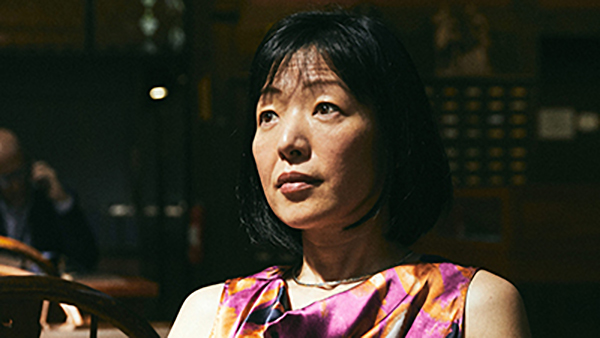
Akiko Iwasaki, an immunology researcher at the Yale School of Medicine, contributes to the fight against Covid-19 with both her vaccine work and her explanations of pandemic science for the public on social media. She thinks that nasal spray vaccines could be the next needed breakthrough in our fight against the coronavirus. Read more. Check out her presentation at the Rosalind Franklin Society 2020 year end meeting. Image: Brandon Schulman for Quanta Magazine
TWU biology's Dr. Pislariu earns $1 million CAREER grant.
Texas Woman’s University received a $1 million grant from the National Science Foundation for research on methods to rehabilitate farmland by planting crops that not only grow in depleted soil but also contribute to the regeneration of that exhausted earth. The research is under the direction of Catalina Pislariu, an assistant professor of biology at the university. Read more.
Pew funds 22 scientists investigating critical biomedical questions.
The 2022 class of scholars—all early-career, junior faculty—joins a rich network of the more than 1,000 scientists who have received awards from Pew since 1985. Current scholars have opportunities to meet annually to build connections and exchange ideas with fellow Pew-funded scientists. 11 this year are women in science! Read more.
Why it’s important to ask: ‘What does a scientist look like?’
Although stereotypes around scientists are shifting from the older man in a white coat, the rate of change is slow. Changing these stereotypes may be a key part of dealing with issues around gender equality in STEMM. Read more.
First public statue of female scientist in Italy celebrates astronomer.
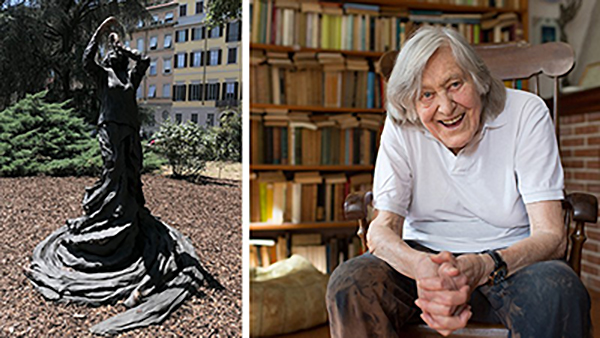
Astronomer Margherita Hack has become the first female scientist honored with a public statue in Italy. Hack, who was born in 1922 and died in 2013, was a high-profile figure for decades in the country, where she was a prominent science communicator and is credited with inspiring generations of young women to pursue a career in science. The statue shows Hack emerging from a vortex, representing the spiral shape of a galaxy. Read more. Credit: Left, Nick Zonna/ipa-agency/Shutterstock; right, Massimo Sestini/Mondadori via Getty (Nature).
‘Moms in Proteomics’ aims to bring together a community for supporting mothers in STEM.
Jennifer Geddes-McAlister, Assistant Professor of the Department of Molecular and Cellular Biology at the University of Guelph, was recently invited to publish an article about Moms in Proteomics. She talked about the importance of sharing stories of success and challenges, and building a community of mothers in STEM to support each other and the next generation. Read more.
Nominations for 2023 Advocacy Awards - Research!America.
Nominations are open for the Research!America’s 2023 Advocacy Awards! The awards below recognize individuals and organizations whose accomplishments in advocacy for scientific, medical, public health, or other health-related research have saved lives and improved the health of our nation. Click below to submit your nomination today! Please submit your nominations by Thursday, June 30, 2022. Read more.
Marianna Limas, Social Media Manager
Nilda Rivera, Partnership and Events Manager
|
|
Dear Colleagues,
I am pleased to include another issue of RFS Briefings with some timely and encouraging updates on women in science.
Please continue to share important news and opportunities with us so that we may share it with you, and others who are committed to supporting the careers of exceptional women in science.
Stay safe and sound,

Karla Shepard Rubinger
Executive Director
Rosalind Franklin Society
www.rosalindfranklinsociety.org

She Persisted in Science: An Exclusive Interview with Chelsea Clinton.
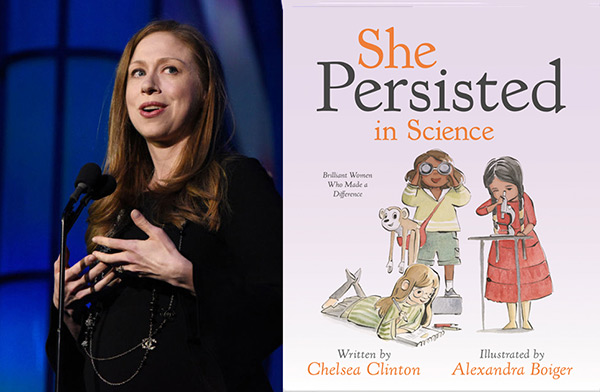
The Rosalind Franklin Society (RFS) and Genetic Engineering and Biotechnology News (GEN) had the pleasure of co-hosting an interview with Chelsea Clinton—a champion of women who persist and pursue their passions. Her mission currently takes the form of a new children’s book series. The most recent in the series, She Persisted in Science, features 13 women scientists. Read more.
Dr. Mona Fouad receives 2022 Vilcek-Gold Award for Humanism in Healthcare.
Dr. Mona Fouad received the 2022 Vilcek-Gold Award for Humanism in Healthcare award for her leadership in health disparities research, and for her career-long commitment to equity in healthcare. Fouad’s work has been foundational in the development of rigorous research and interventions to make healthcare more accessible and equitable to historically underserved populations in the United States. Read more.
Women more likely to win awards that are not named after men.
Some researchers have suggested mechanisms for the possible connection between prizewinners and award names. Unconscious bias could influence award-committee members to select winners who resemble the role model the prize is named after, says Johanna Stadmark, a geologist at Lund University. Read more.
Submit your nomination for the Awards at Biotech Week Boston.
Nominations are now open to honor the top individuals, companies, and organizations that make the life sciences ecosystem vibrant and innovative. Since 2018, the Awards at Biotech Week Boston have been bringing together the faces and names that make the Boston community the beating heart of the biotech world. Read more.
Eppendorf & Science Prize for Neurobiology.
The international Eppendorf & Science Prize for Neurobiology is awarded annually to one young scientist who is not older than 35 years for the most outstanding neurobiological research based on methods of molecular and cell biology conducted by him/her during the past three years. Read more.
Winners of 2022 Kavli Prize announced June 3, 2022.
The Norwegian Academy of Science and Letters has announced the 2022 Kavli Prize laureates in the fields of astrophysics, nanoscience, and neuroscience, and laureates in each field will share $1 million. Congratulations to Huda Y. Zoghbi, RFS board member, and the other 2022 Kavli Prize Laureates for their transformative contributions to science and society. Read more.
‘Tackling the Challenges of Our Time Requires All of Us to Be at the Table’
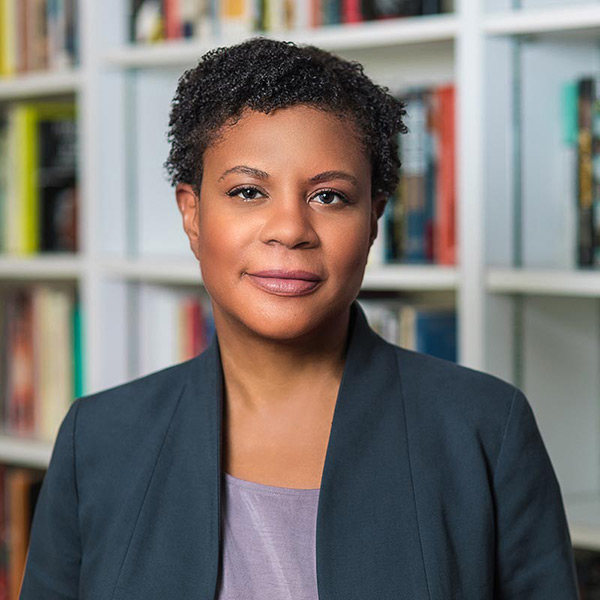
As the world faces challenges such as preparing for future pandemics and the worsening impacts of climate change — our present moment is defined by the urgent need to improve equity, according to Alondra Nelson, acting director of the White House Office of Science and Technology Policy. “Those grand challenges, those wicked problems from climate crisis to societal inequities, from health disparities to environmental injustice, and more, those answers are not necessarily one size fits all,” said Nelson, the keynote speaker at a recent National Academies event. Read more.
A $25,000 Award for Women in Science Addressing Air Quality and Climate Change.
The Story Exchange, an award-winning nonprofit media organization dedicated to elevating women’s voices, is seeking submissions for its 2nd annual Women In Science Incentive Prize. They will award $5,000 incentive prizes to 5 female scientists working to improve air quality and protect health. Deadline for submissions: July 31. “We know that women in science, particularly early-career women, can feel isolated as they work on novel solutions to pressing climate change issues,” said Sue Williams, executive director of The Story Exchange. “We hope this prize supports them and recognizes their efforts, which often go unseen and unsung.” Read more.
L'Oréal-UNESCO For Women in Science international awards 2022.
In this special Ceremony gathering the laureates from the past three editions, 15 exceptional researchers will receive the L’Oréal-UNESCO For Women in Science International Awards in recognition of their outstanding scientific achievements in recent years, along with 30 young female scientists, selected in 2020 and 2022, who will earn the title of International Rising Talents. Read more.
Nominations for the George Washington Carver Award & Rosalind Franklin Award are Now Open.
The two prestigious BIO Impact awards celebrate new pioneers in biotechnology and honor those who came before. Each year these awards for innovation and leadership are presented to individuals who have made a significant contribution to building the biobased economy. Read more.
The Unwritten Laws of Physics for Black Women.
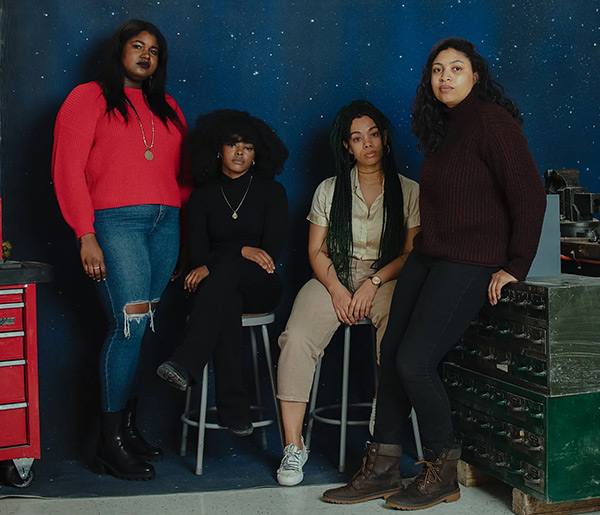
Black women in physics face a lot of exhausting challenges, no matter how talented and brilliant they are. “The problem is not with us. It’s systemic, and it can only begin to change once there are more of us—taking up space, sharing our views, being ourselves,” writes Katrina Miller. Read more. Photo by Akilah Townsend. Left to right: Andrea Bryant, LaNijah Flagg, Katrina Miller, and Ayanna Matthews connected as a group when Flagg arrived in Chicago.
Marianna Limas, Social Media Manager
Nilda Rivera, Partnership and Events Manager
|
|
Dear Colleagues,
I am pleased to include another issue of RFS Briefings with some timely and encouraging updates on women in science.
Please continue to share important news and opportunities with us so that we may share it with you, and others who are committed to supporting the careers of exceptional women in science.
Stay safe and sound,

Karla Shepard Rubinger
Executive Director
Rosalind Franklin Society
www.rosalindfranklinsociety.org

Chien-Shiung Wu’s work defied the laws of physics.
Chien-Shiung Wu flouted gender and racial barriers and eventually came to be known as the “first lady of physics.” Despite how frequently she experienced discrimination throughout her career—during which she won every award in the field except the Nobel—Wu didn’t stop researching until her retirement in 1981. Read more.
Why menopause matters in the academic workplace.
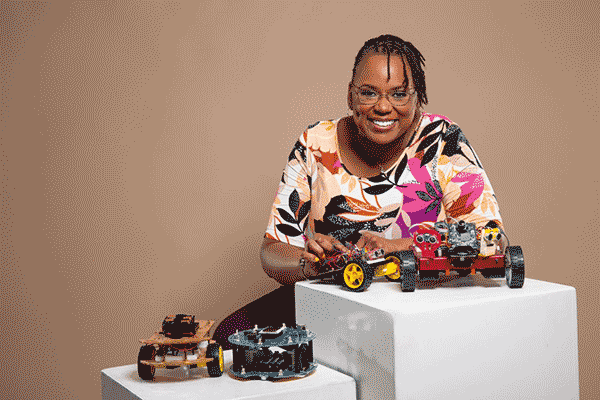
Half of the world’s population can expect to experience menopause. Yet, most workplaces don’t see menopause — and the mental and physical changes that accompany it — as something they have to support. And many women are reluctant to speak out for fear it might lead to them being labelled as problematic. Read more. Image: Menopause hit electrical and computer engineer Carlotta Berry “like a steam truck”, and now she counsels younger colleagues experiencing it.Credit: Haley Rose Photography.
New HHMI program pledges $1.5 billion for outstanding early career faculty committed to diversity, equity, and inclusion.
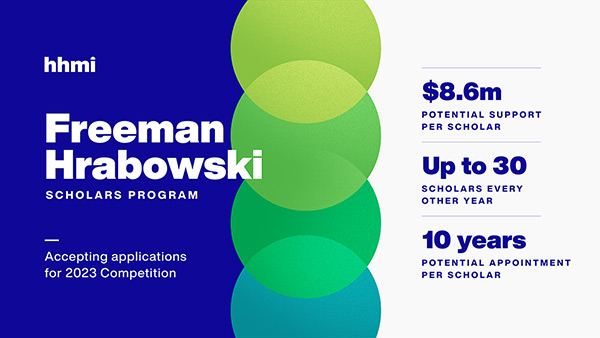
HHMI, part of our Council of Academic Institutions, has launched a $1.5B program designed to build a more diverse scientific workforce by supporting early-career basic biomedical researchers, including physician-scientists. Over the next 20 years, HHMI expects to hire and support up to 150 early career faculty as Freeman Hrabowski Scholars – appointing 30 Scholars every other year for the next decade. Read more.
The pandemic is our chance to fix the Black women in STEM gap.

Black women are now the most educated group in the United States, but they remain woefully underrepresented in science, technology, engineering and mathematics (STEM) fields. The COVID-19 pandemic is our chance to repair this gap. Read more. Image by (WOCinTech Chat / Flickr).
Biochemist Marie Maynard Daly uncovered what makes us tick.
Crack open any high school science textbook, and it’ll likely contain a few basic concepts of human biology. What you likely won’t find is a reference to the American biochemist Marie Maynard Daly, who contributed fundamental research to these ideas throughout her prolific career. The omission is neither a surprise nor an accident. Daly, a Black woman, was underappreciated for much of her professional life, which spanned from the 1940s to 1986. Read more.
Racial and economic barriers kept Carolyn Beatrice Parker from realizing her full potential.
All too often, even in 2022, Black students are interpreted through a deficit model: Academic institutions assume that we’re underprepared and that our families are unfamiliar with such work. Read Carolyn Beatrice Parker’s CV in the context of her family’s achievements, however, and it’s immediately apparent that she represents an example of what’s possible when intellectual success is expected and the resources to achieve it are provided. Read more.
Esther Lederberg changed our understanding of how bacteria breed.
On December 10, 1958, microbiologist Esther Lederberg stood next to her husband. Clad in a pale, floor-length gown, clutching a small purse in gloved hands, she gazed unsmiling into the camera. Joshua Lederberg had just won a Nobel Prize in Physiology or Medicine for his discoveries in bacterial genetics. Read more.
How academic institutions can help to close Wikipedia’s gender gap.
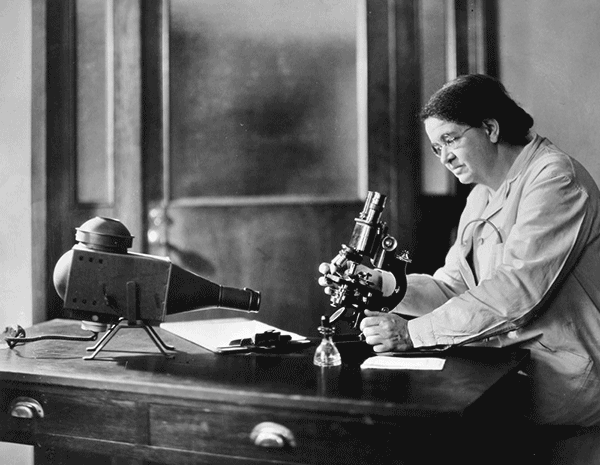
Since 2018, 500 Women Scientists, a grass-roots advocacy organization of which we are all members, has run more than 30 Wikipedia edit-a-thon sessions — workshops in which Wikipedia experts and novices come together for a guided crash course on the website and a few hours of focused editing. Read more. Image: Physician Florence Sabin was a pioneering woman in science.Credit: Granger Historical Picture Archive/Alamy.
Jocelyn Bell Burnell discovered pulsars, but someone else won the Nobel.
Jocelyn Bell Burnell, a doctoral student in astronomy at Cambridge University, was plowing through the massive set of cosmic data from a radio telescope when she spotted something peculiar: a series of spikes in relative brightness. She’d discovered the first known pulsar—a rotating neutron star that emits beams of electromagnetic radiation out of its magnetic poles, akin to a lighthouse spinning its beam. Read more. She spoke at our 2020 RFS year-end meeting. Check her out here.
Marilyn Fogel, Biogeochemist and “Isotope Queen,” Dies at 69.
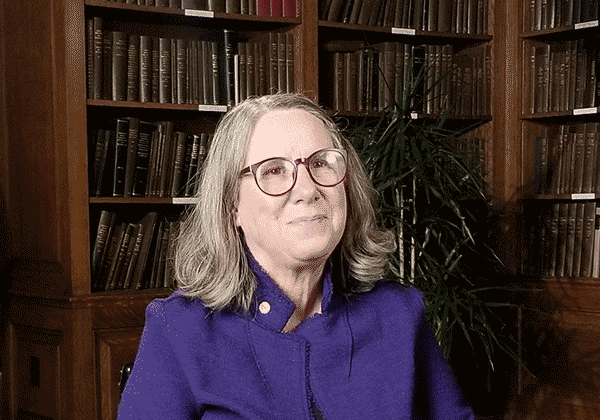 Photo by Natasha Metzler / Carnegie Institution for Science Photo by Natasha Metzler / Carnegie Institution for Science
“Driven by her deep curiosity about nature, she fearlessly pursued new knowledge by developing novel methods to probe isotopic and geochemical phenomena across a broad range of disciplines,” Eric D. Isaacs, president of the Carnegie Institution for Science, says in an announcement about Fogel’s death. Read more.
Science in Africa: ‘The world needs science and science needs women’
Doreen Anene and Stanley Anigbogu launched separate initiatives to promote science careers to young girls and women in Africa. Anene, a final-year animal-science PhD researcher at the University of Nottingham, UK, says her mother struggled to get a teaching job in Nigeria because she did not have a science background. Her experience inspired her to set up The STEM Belle, a non-profit organization in Nigeria. Anigbogu, a storyteller and technologist, founded STEM4HER after meeting a young girl at a science fair. She told him that her mother thought that careers in STEM (science, technology, engineering and mathematics) were for boys, not for her. Read more.
In Her Own Words: Jen Colvin works to diversify STEM pipeline.
The impact of the pandemic on education as well as the disproportionate setbacks to underprivileged students have been well-documented. But even before Covid, Jen Colvin was devoted to bringing equity to education, especially in the areas of science, technology, engineering and mathematics (STEM). Read more.
Gladys West’s mathematical prowess helped make GPS possible.
A retired naval mathematician, West spearheaded a mathematical model of the Earth’s size and shape (a.k.a., a geoid), which is an essential layer underpinning today’s GPS networks. Since their launch in 1978, satellite navigation systems have touched nearly every aspect of both private and public life on Earth—from emergency response and power grid systems to turn-by-turn navigation and stock exchange timing. West’s contributions, however, were unknown to the public for nearly 40 years. Read more.
Marianna Limas, Social Media Manager
Nilda Rivera, Partnership and Events Manager |
|
Dear Colleagues,
I am pleased to include another issue of RFS Briefings with some timely and encouraging updates on women in science.
We want to highlight the Call for Nominations from the Genome Writers Guild. We are again working with them to award the Rosalind Franklin Medal. You can see details HERE.
Please continue to share important news and opportunities with us so that we may share it with you, and others who are committed to supporting the careers of exceptional women in science.
Stay safe and sound,

Karla Shepard Rubinger
Executive Director
Rosalind Franklin Society
www.rosalindfranklinsociety.org

An international award recognizing outstanding women in biomedical research.
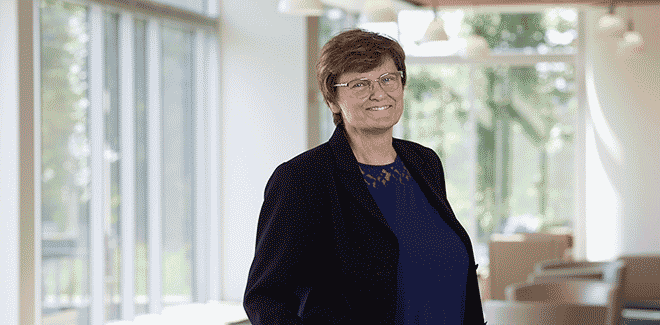
The Pearl Meister Greengard Prize, awarded annually by Rockefeller University, was established by the late Dr. Paul Greengard, who served as the university’s Vincent Astor Professor, and his wife, the sculptor Ursula von Rydingsvard. Katalin Karikó, whose discovery of how to keep synthetic RNA from activating the innate immune system paved the way for RNA vaccines, including two for SARS-CoV-2, will receive the 2022 Pearl Meister Greengard Prize. Read more. Check out her Women in Science RFS webinar. Image: Katalin Karikó (Credit: Penn Medicine)
NASA climate research scientist awarded World Food prize.
Cynthia Rosenzweig, an agronomist and climatologist, was awarded the $250,000 World Food prize in recognition of her innovative modeling of the impact of climate change on food production. She is a senior research scientist at the NASA Goddard Institute for Space Studies and serves as adjunct senior research scientist at the Columbia Climate School at Columbia University, both based in New York. Read more.
Gehring discusses new climate change project.
Whitehead Institute Member Mary Gehring was a featured presenter at a recent symposium sponsored by the MIT Climate Grand Challenges initiative. Gehring, who is leading a study on how to make food crop plants more robust in the face of climate change, discussed the flagship project for which she is a key investigator, Revolutionizing Agriculture with Low-emissions, Resilient Crops. Read more.
Scientific collaborations are precarious territory for women.
Female scientists, who, as a whole, are more junior than their male counterparts, often have to decide whether they want to collaborate with a well-resourced scientist, who is more likely to be male, or with a peer of any gender whose stature won’t overshadow them. By collaborating with other women, female scientists can push back against the systemic barriers to female-led team research. Read more. Image: Emmanuelle Charpentier (left) and Jennifer Doudna (right) won the 2020 Nobel Prize in Chemistry — the first all-female team to win a Nobel.Credit: Miguel Riopa/AFP/Getty.
She helped change vaccines forever.
The highly effective mRNA COVID vaccines were essential to end this pandemic and will likely play a critical role in preventing future pandemics. They are the product of decades of painstaking work by researchers. One of those researchers is Dr. Katalin Karikó, a Hungarian biochemist who long ago saw the potential of mRNA to save lives when few others did. Read more.
In situ with Susan Solomon.
Susan Solomon is the Lee and Geraldine Martin Professor of atmospheric chemistry and climate science at the Massachusetts Institute of Technology, US. She recently spoke with Emma Pewsey about battling the elements in Antarctica and preserving the integrity of science. Read more.
The pandemic is our chance to fix the Black women in STEM gap.

How can companies not only recruit but retain more Black women in STEM? It takes more than making sure there are equal and equitable opportunities for Black women to have access to science and math coursework. Companies also need to implement intentional career interventions that address mental health. STEM careers are important and directly impact and improve the world we live in, but they are also stressful. Read more. Image: Black women are now the most educated group in the United States, but only 2 percent of STEM jobs are held by Black women. (WOCinTech Chat / Flickr)
SWHR announces 2022 honorees in public service, education, and industry for annual awards gala.
The Society for Women’s Health Research (SWHR) will recognize and honor three leaders in health care who have made contributions to advance women’s health at its 2022 Annual Awards Gala on Thursday, April 28, 2022. Read more.
The incredible life of Maria Sibylla Merian | The Royal Society.
Maria Sibylla Merian is considered one of the earliest entomologists and ecologists and has a wide group of admirers, including Sir David Attenborough. Read more.
Childcare crowdfunding campaigns aim to keep mums on the academic track.
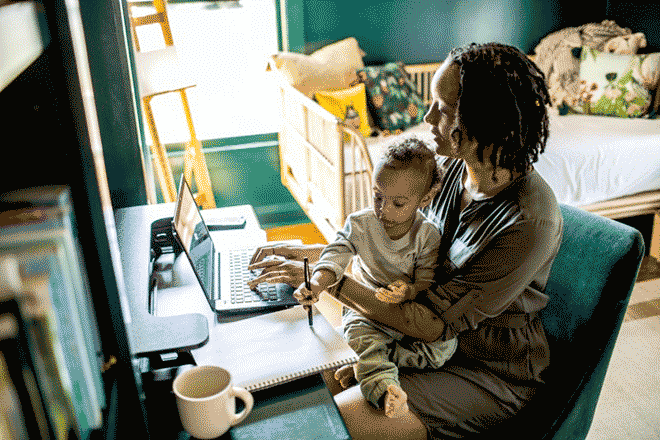 Female scientists are among the most difficult groups to retain in academia. Black and Hispanic women comprise just 5% or less of tenured faculty in the United States, according to a study that Cardel published in 2020. And the pandemic exacerbated the challenges. Read more. Image: For financial support, researcher parents are turning to crowdfunding programmes — some of which target mothers of color specifically. Credit: Getty Female scientists are among the most difficult groups to retain in academia. Black and Hispanic women comprise just 5% or less of tenured faculty in the United States, according to a study that Cardel published in 2020. And the pandemic exacerbated the challenges. Read more. Image: For financial support, researcher parents are turning to crowdfunding programmes — some of which target mothers of color specifically. Credit: Getty
Congratulations to the winners of the YIGH Global Health Spark Awards.
The Yale Institute for Global Health (YIGH) has selected Nicky Hawley, associate professor of epidemiology (chronic disease), Yale School of Public Health; Raul Hernandez-Ramirez, associate research scientist in biostatistics at the Yale School of Public Health; and Melanie Sion, assistant professor of surgery, Yale School of Medicine, to receive YIGH Global Health Spark Awards. Read more.
Engineering and medicine combine to save babies: Turning a product into a company.
Entrepreneur Anjelica Gonzalez, Ph.D., and a team of engineering researchers at Yale had a vision to help premature and in-distress babies breathe. They created technology for a respiratory device that warms, oxygenates, and sterilizes delivered air for newborn babies at 1/10th the cost of other devices, making it accessible to populations in lower- and middle-income countries (LMICs). Read more.
Agnes Chase, a grass scientist, showed us what ‘holds the earth together’.
In an era when women were expected to be wives, mothers, and homemakers—and hadn’t yet won the right to vote—Agnes Chase had already built an impressive career as a scientific illustrator at one the US’s premier institutions, co-authored a book, and proved to be so good at her craft that her male supervisor was ready to break the societal norms to take her with him. Read more.
Ursula Bellugi, leading sign language neuroscientist, dies at 91.
Neuroscientist Ursula Bellugi made significant contributions to decreasing the stigma of American Sign Language (ASL) by showing it is a complex language and not a truncated stand-in for spoken language, as some critics had described it. Bellugi died on April 17 at the age of 91. Read more.
How women can identify male allies in the workplace.
Allyship is defined as a strategic mechanism used intentionally by individuals who strive to be collaborators, accomplices, and co conspirators. Allies are deeply invested in challenging and disrupting the status quo, dismantling systemic inequities, and shifting the power structure within an organization. Read more.
Helen Thompson Woolley showed biology does not define gender.
Helen Thompson Woolley’s family encouraged her education, and she, like many others during the so-called Progressive Era, developed a conviction that science could solve social ills. In 1893, thanks to a scholarship, she enrolled at the newly founded University of Chicago, where she gravitated toward the burgeoning field of experimental psychology. Read more.
Marianna Limas, Social Media Manager
Nilda Rivera, Partnership and Events Manager
|
|
|